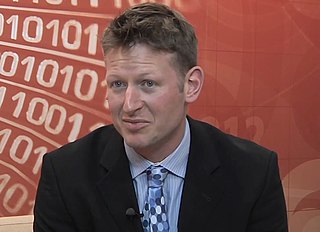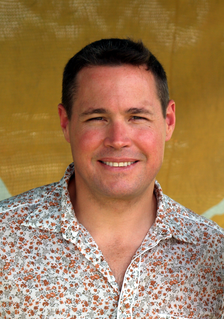A Quote by Annalee Newitz
The early Triassic was a period when the planet was recovering from the worst mass extinction it had ever known - that was the end Permian extinction, where climate change caused in part by mega-volcanic eruptions wiped out ninety-five percent of life on Earth. It took about ten or twenty million years for the planet's ecosystems to stabilize. During that time you saw a lot of weird, out-of-balance ecosystems where, for example, crocodile-like predators ripped the crap out of each other along the coasts.
Quote Topics
About
Along
Balance
Caused
Change
Climate
Climate Change
Crap
Crocodile
Each
Early
Earth
Ecosystems
End
Ever
Example
Extinction
Five
For Example
Had
Known
Life
Like
Lot
Mass
Mass Extinction
Mega
Million
Million Years
Ninety
Other
Out
Part
Percent
Period
Planet
Predators
Recovering
Ripped
Saw
Stabilize
Ten
Time
Took
Twenty
Volcanic Eruptions
Weird
Worst
Years
Related Quotes
There is evidence that we are headed into what would be the planet's sixth mass extinction. It's hard to know for sure if you're in one because a mass extinction is an event where over 75 percent of the species on the planet die out over a - usually about a million-year period. The fastest it might happen is in hundreds of thousands of years.
Global warming, along with the cutting and burning of forests and other critical habitats, is causing the loss of living species at a level comparable to the extinction event that wiped out the dinosaurs 65 million years ago. That event was believed to have been caused by a giant asteroid. This time it is not an asteroid colliding with the Earth and wreaking havoc: it is us.
Many scientists would argue that we are now in what is called Extinction, and it's caused by this perfect extinction storm: climate change, habitat loss, pollution, unsustainable exploitation of species and habitat resources, and of course, human population explosion. All of these factors work together and conspire to drive a species to extinction on our planet, every half an hour.
We discover too late that we have turned a blind eye to the extinction of a species that is essential to the balance of life in a particular context. Or we discover too late that the importation of a foreign life-form, animal or vegetable, has upset local ecosystems, damaging soil or neighbouring life-forms. We discover that we have come near the end of supplies-of fossil-fuels for example -on which we have built immense structures of routine expectation.
We are headed to a radically new Earth, at least from our perspective. But from the planet's perspective, this is nothing new. As the geologist Peter Ward is fond of pointing out, we are actually heading back to a time kind of like the Miocene. The Miocene ended about 5.5 million years ago, and it was the last time that the planet had no icecaps.
If we return abruptly to a Miocene-like climate, it's reasonable to think that we would experience a lot of extinctions, and maybe even a mass extinction in the long term. Would the life on Earth be radically different? Of course we can't say for sure, but I think a lot of it would look familiar. Like a lot of people, I worry a lot about whether marine mammals would survive, especially whales. Ocean acidification is one of the major killers in climate change events, and that makes the ocean a very inhospitable place.
With respect to phenomena like mass extinction, somebody might say why worry about it because in a geological perspective mass extinctions aren't so bad, they wipe out some things and then 10 million years down the road we get new and interesting objects.But I tell you mass extinctions are really awful for folks caught in the midst of them.





























